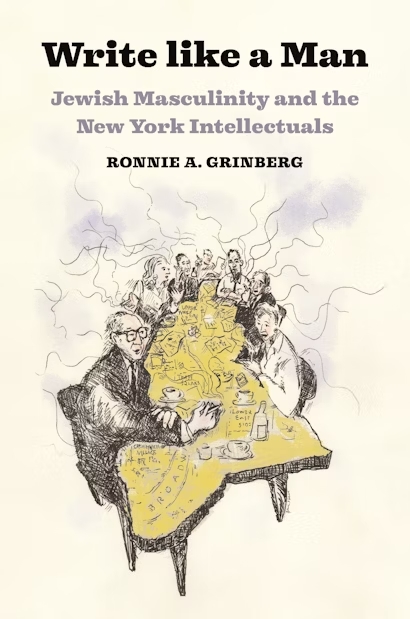In Write Like a Man: Jewish Masculinity and the New York Intellectuals, Ronnie Grinberg, a historian at the University of Oklahoma, has reconfigured the story of the New York intellectuals. As she notes, many of the most prominent New York intellectuals were not just Jewish—they were men. This circumstance has sociological implications. These intellectuals inhabited and created male spaces like Alcove 1 and mostly male institutions like Partisan Review and Commentary, their pivotal magazines. The writings of Irving Howe, Norman Podhoretz, and Norman Mailer, New York intellectuals all, showed an obsession with masculinity, their own and that of others. They developed an “ideology of secular Jewish masculinity,” Grinberg writes, which was expressed in a style of writing that merged “verbal combativeness, polemical aggression, and an unflinching style of argumentation.”
While many historians have traced the New York intellectuals’ march from youthful communism and on to anti-communism and neoconservatism, Grinberg uncovers a less obvious narrative. She examines this group’s notions of masculinity and femininity, charting the relationships among men and women that ordered their world. For decades, the men set the tone of the group, writing in the hard-edged, competitive, flashy style they had pioneered in the 1930s. The intellectual women of this world—Mary McCarthy, Elizabeth Hardwick, and Diana Trilling, most notably—mastered the features of that style, bringing new tonalities and concerns to it. The revelation Grinberg traces through each of these lives is that these accomplishments could be both liberating and constraining. They could release a competitive creativity while limiting the expressiveness of men and women alike.
Write Like a Man is haunted by the Old World. Its prehistory is that of Ashkenazi Eastern Europe. In imperial Russia or in the Habsburg empire, Jewish men were valued in their own communities as religious scholars and often undervalued and discriminated against by the non-Jewish majorities. Those Jewish men who made their way to the United States had to contend with menial or low-paying jobs and with sons who, bookish as they might be, mostly did not aspire to be Jewish scholars. In turn, these sons had to invent a manhood that made sense to them. Coming of age on the New York City streets, they combined a scrappy masculinity with an inherited intellectualism. Having embraced “a new kind of masculinity,” Grinberg writes, they made it their vehicle of assimilation into America.
